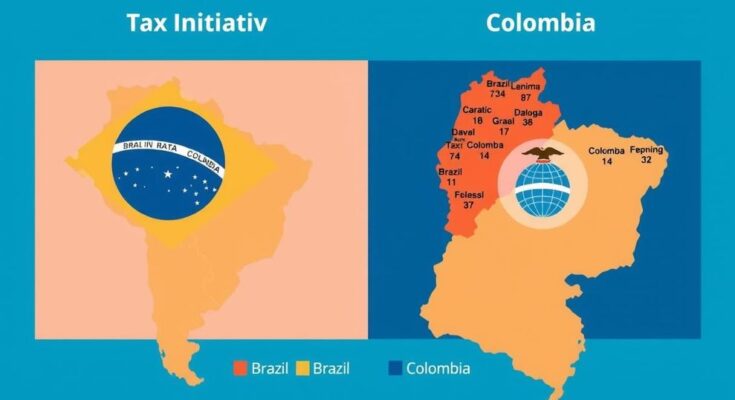Brazil and Colombia are faced with the challenge of implementing the OECD’s Pillar Two tax framework. Brazil has introduced the MP 1262/24 provisional measure for a 15% minimum tax, affecting multinationals with revenues above 750 million euros, while Colombia has adopted a minimum income tax but has not yet followed suit with Pillar Two. These developments require multinationals to reassess tax strategies and compliance measures in the face of changing legislation.
Brazil and Colombia are at a crossroads regarding the OECD’s Pillar Two tax framework, which necessitates that substantial multinational firms either adhere to taxes implemented by other nations or establish local minimum top-up taxes. Both countries face significant implications from these choices, as the introduction of domestic taxes may alter existing tax incentives and potentially hinder foreign investment. Brazil recently proposed a provisional measure to enact a 15% minimum tax, impacting multinationals with considerable revenues, while Colombia has yet to implement similar policies despite recognizing inequities in local tax practices. Both nations must navigate the complexities of compliance and the implications for multinationals operating within their borders.
The issue of tax compliance under the OECD’s Pillar Two framework presents a formidable challenge for countries in Latin America. Brazil and Colombia have adopted distinct approaches, reflecting the diversity of taxation policy across the region. Specifically, Brazil has set forth a provisional tax measure that mandates a minimum top-up tax, while Colombia has acknowledged the need for a minimum income tax. This divergence not only signifies differing tax strategies but also emphasizes the critical need for multinational companies to maintain awareness of evolving tax regulations and their compliance obligations across jurisdictions.
In conclusion, Brazil and Colombia’s decisions regarding their respective implementations of the OECD’s Pillar Two framework will have profound implications for their multinational corporations. Brazil’s introduction of a domestic top-up tax and Colombia’s current lack of similar measures illustrate the varied landscape of tax compliance in Latin America. Multinational firms must vigilantly monitor these developments to ensure adherence to local tax laws while minimizing the risk of double taxation and managing compliance costs effectively.
Original Source: news.bloomberglaw.com




